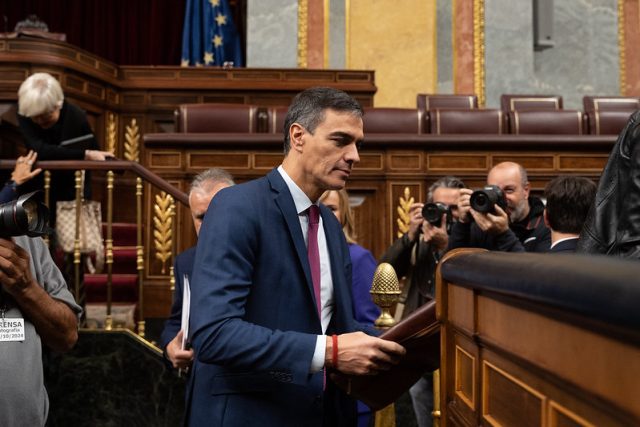
Spain’s Contingency Fund, a budgetary allocation specifically designed to address catastrophic emergencies and extreme situations within Spain, has this year been repurposed in ways that appear to deviate significantly from its original intent.
Among the most striking examples is the €800 million that Pedro Sánchez’s government has allocated to military missions abroad, a decision that contrasts starkly with the limited attention and resources directed towards domestic disasters, such as the devastating floods in Valencia.
Initially set at €3.113 billion for 2024, the Contingency Fund was reduced to just €1.634 billion by the end of the third quarter.
The €800 million spent on supporting the Spanish military’s “peace missions” overseas, while aligning with Spain’s international commitments, undermines the fund’s essential purpose of responding to urgent crises within the nation.
This diversion of more than a quarter of the fund’s total allocation underscores a troubling pattern: the prioritisation of international objectives over pressing domestic emergencies.
The floods in Valencia are a glaring example of this imbalance. These floods, which caused extensive damage and left communities devastated, demanded an immediate and robust governmental response. Yet the lack of urgency in mobilising Contingency Fund resources has left those directly affected feeling abandoned during their time of greatest need.
The death toll in Valencia surpasess the 200 mark. It has been the most deathly natural disaster in Spain’s modern history. So much has admitted Prime Minister Pedro Sánchez from the Spanish Socialist Worker’s Party (PSOE).
This misuse of the Contingency Fund is not an isolated incident but part of a broader pattern of questionable financial decisions. For instance, the fund has been used to cover pension payments and provide subsidies for transportation in Spain’s insular territories—expenditures that could and should have been addressed through the General State Budget (PGE).
One particularly contentious example is the allocation of €92 million from the Contingency Fund to finance political parties. The Law establishes political parties are entitled to certain subsidies from the Government, but those funds must come from the Ministry of the Interior, not the Contingency Fund.
The handling of past disasters further illustrates the government’s approach to emergency funding.
The damage caused by Storm Filomena and the eruption of the La Palma volcano in 2021 both received limited and delayed support. When compared to the €800 million allocated for foreign missions, the funds directed towards these disasters seem negligible.
The lack of transparency and strategic planning in the government’s financial management only exacerbates public frustration.
The repercussions of these decisions extend beyond financial mismanagement. Communities affected by disasters, such as the floods in Valencia, are left feeling neglected and abandoned by their government. Seeing resources earmarked for their recovery directed elsewhere erodes trust in state institutions and fosters a sense of systemic neglect. Over time, this can weaken public confidence in the government’s ability to respond effectively to future crises.
There has yet to be an official response from the Spanish opposition to this issue.
Observers have called upon Spain’s government to take immediate steps to restore the Contingency Fund to its intended purpose. This requires not only stricter oversight and accountability but also a commitment to prioritising domestic needs over international objectives or political expediencies.
But the Sánchez government remains silent about this.
Sánchez is expected to appear in Parliament later this week, but it is still unclear wheter the opposition will ask him about this specific issue.
The misuse of the Contingency Fund highlights a troubling disconnect between governmental priorities and the needs of the Spanish people. As devastating events like the floods in Valencia demonstrate, this critical resource must be safeguarded and used effectively to provide relief during times of national crisis.



 Subscribe
Subscribe